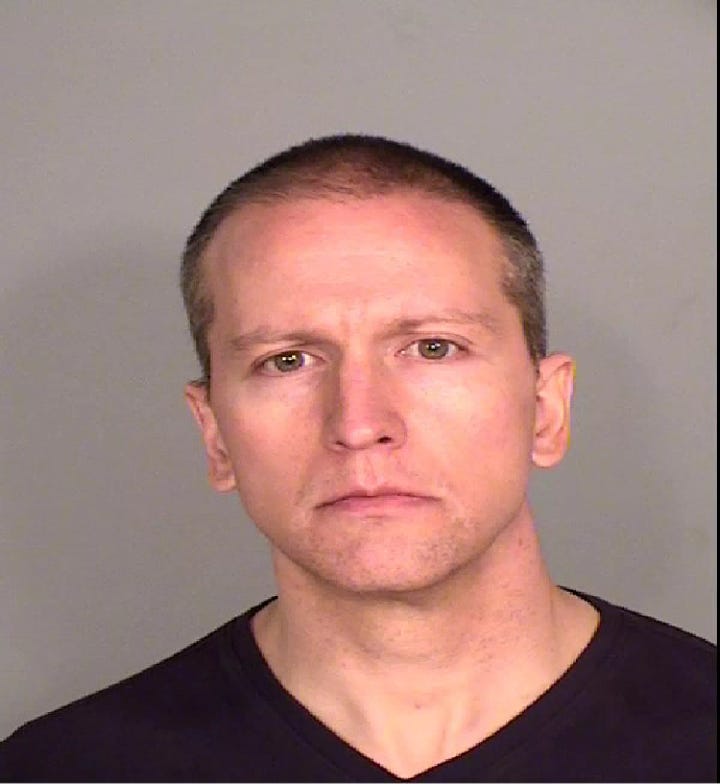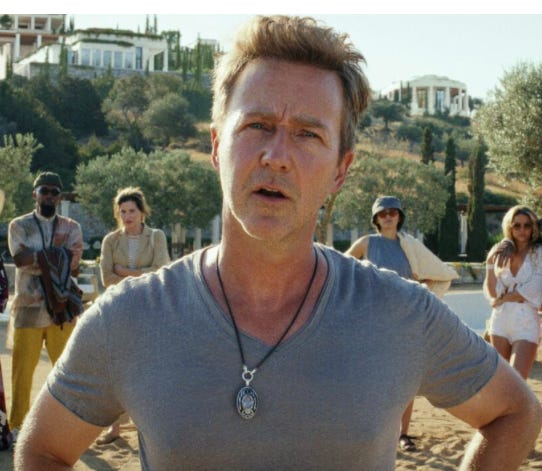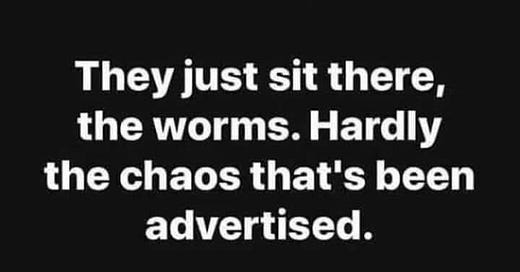As my kids could tell you, one of my mottos, to which I subjected them frequently when they were little, is “Different people like different things, and that’s ok.” We all have our own tastes, and no one enjoys it when someone starts ranting about how awful our favorite book or movie is. It sows conflict and rarely persuades anyone anyway. Most of the time, when a person loves a book or show that we think is dumb, it’s better to just let them be. They don’t need our opinion.
That being said, some books or movies—even beloved ones—carry pernicious messages, and it’s worth discussing them. So this week I’m going to open that can of worms and yuck some very popular yums.
Readers, it is ok with me if you decide to skip parts of this article, because not only will I be railing against some beloved books and movies, but there will also be spoilers. However, if you’re willing to give this article a try, I promise that you will be rewarded with spoiler-free recommendations for books and movies that are not only entertaining but that also have wholesome, inspiring, and thought-provoking messages for us all.
Still with me? Terrific! Each of the sections below will discuss a laudable idea that the fan favorites purport to communicate, the pernicious messages they actually contain, and better choices for what to read or watch instead.
Celebrating Teachers and the Arts
On an early date with my husband, we made the wonderful discovery that we were perfect for each other. How so? We both—uniquely among everyone we knew—hated Dead Poets Society. Really I ought to have loved the film: I have been a Robin Williams fan since the Mork and Mindy days and was an English teacher who hoped to change kids’ lives through literature, just like Mr. Keating.
The problem is the story of Neil, one of the boys in Mr. Keating’s class. Neil wants to be an actor, but his dad is pushing him to become a doctor. Neil is cast as Puck in the school’s production of A Midsummer Night’s Dream. His dad comes to the show and, enraged by the sight of his son on stage, withdraws Neil from the school and tells him he will be leaving for military school the next morning. That night Neil commits suicide. The film’s director, Peter Weir, bathes the scene in a gorgeous, soft blue light to suggest moonlight. Neil is shirtless and achingly beautiful, and the soundtrack plays lush, haunting music. We don’t see any actual blood, violence, or anything that would sully the aesthetic tableau during this terrible act. When Neil’s parents find his body the next morning, they wail in despair, and the film makes us feel like it serves them right. Pernicious message: When life is unfair, the best solution is to kill yourself, which will make you seem beautiful and tragic and will make everyone who wronged you REALLY SORRY.
If we want to celebrate teachers and the arts, I recommend watching School of Rock instead. The film an absolute blast and deals with many of the same themes as Dead Poets Society, but without the troubling pro-suicide message. Posh school? Check. Uptight principal? Check. Controlling parents? Check. Sharing joy through the arts? Check.
At the start of the film, Jack Black is living in fetid squalor and drives a ratty van. He has just been kicked out of his band and is unemployed, aimless, and suffering from depression. His life is bleak in every way imaginable. And then he gets a chance to teach some elementary school kids and discovers that they are talented, not just in music, but also in fashion, tech, management, and security. He helps the kids realize their potential, and in the process becomes less resentful and more caring—all the while having tremendous, chaotic fun. The scene below, of the band’s climactic performance, celebrates everyone’s talents. (Jack Black1 and the amazing child actors sing and play the instruments themselves.) The parents, initially suspicious, are won over by their kids’ joyous, virtuosic creativity. Wholesome message: When you’re depressed, you will feel better if you help other people and work together with them to create art.
Honoring Nature and Protecting the Vulnerable
Brace yourself: I know that everyone else loves Where the Crawdads Sing, but I think the book is terrible and destructive. As with Dead Poets Society, it ought to be right up my alley, because I am a nature-loving misfit myself, and for me the book’s one virtue is its beautiful and detailed descriptions of the natural world.

But the story is just preposterous. Kya is abandoned in a swamp when she is only six. Her home is a shack with no running water or electricity. Never mind that a small child would be coping with devastating trauma after losing her entire family. Kya manages not only to survive but to thrive and become a celebrated author. It is obvious that Delia Owens has never spent time around small children, because if she had, she would have known that no child, no matter how sensitive and brilliant and in touch with nature, could survive alone in the wilderness with nothing but her wits and the occasional visits of friendly neighbors and one school official2 to sustain her.
If the book were only a fantasy about Robinson Crusoe Jr., I would have kept my fulminations to myself.3 But in fact the book advocates for vigilantism and murder. (This pro-vigilantism attitude shows up in Owens’s real life too. Her husband and stepson have been accused of murdering one suspected poacher and assaulting many others in Zambia. Owens is wanted for questioning as a possible accessory.) After Kya’s former boyfriend gets sexually aggressive with her, she escapes and constructs an elaborate and successful plot—complete with an alibi involving interstate travel and disguises—to murder him. She literally gets away with murdering a young man who was his parents’ only child, and Owens wants us to be happy about it. At no point does Kya consider going to the police, enlisting the help of the kind school official, or, heck, putting a lock on her door. Pernicious message: When life is unfair, the best solution is to kill the person who is bothering you. There is no other way.
If we want to honor nature and believe in protecting the vulnerable, I recommend reading The River, by Peter Heller, instead. Two young men, Jack and Wynn, are experienced wilderness instructors on their dream trip, canoeing through the Canadian wilderness to the Hudson Bay. From the novel’s opening line, “They had been smelling smoke for two days,” we know that their trip is about to go horribly wrong. And yet the men continue to act with integrity, in every dilemma and crisis they face. Heller, himself a lifelong outdoorsman, details how the young men confront their various problems, both practical and spiritual. The dangers in the book are much worse than Kya’s ex-boyfriend, and yet Jack and Wynn act with courage and make sacrifices to preserve life.
The plot reads like a thriller but is written with attentive descriptions of nature in all its sublime beauty and terror. Nature symbolizes the justice that Heller and his characters believe should be the foundation of our lives:
The implacability and violence of nature always awed him. That it could be entirely heedless and yet so beautiful. That awed him. But also its intricate intelligence. Its balancing. Its quiet compensations. It was like some unnamed justice permeated everything.
One more advantage to The River: Literary fiction can sometimes feel like it is written for women rather than men. Too often books like Crawdads set women up as plucky heroines beset by cartoonishly evil men.4 I love The River because it is an exception to this trend and, for lack of a better way of putting it, is a very male book. Yes, men can be violent enemies like Kya’s ex-boyfriend, but they can also be protectors, as Heller’s characters demonstrate repeatedly. Of the thousands of books I’ve read in my life, The River ranks as one of the very best. Inspiring message: No matter what, we must do all we can to act justly and to help and protect others.
Satirizing the Rich
We are in the midst of a spate of movies and shows that satirize the rich, from the powerfully moving Succession to the entertainingly biting White Lotus to the gratuitously nasty The Menu.5And then we have . . . Glass Onion. Why does everyone love this film? Yes, the actors are terrific, as are the production design and the costumes. But the film is guilty of straw-manning and an utter lack of compassion for its characters. As just one example, a scene early in the film reveals that Dave Bautista’s character has been physically abused by his mom—the way she casually hauls off and slaps him makes that clear—but the film treats this violence as a joke about how pathetic men’s rights activists are, instead of a terribly sad explanation for why they might be drawn to the movement in the first place.
Even worse, the ending of the film justifies rioting as a response to injustice. Because Ed Norton’s character is so utterly reprehensible and irredeemable, we feel like he deserves what he gets. But rioting that occurs in the real world, as opposed to the black-and-white world of the film, hurts regular people—owners of small businesses, innocent bystanders, and families who live in the affected neighborhoods. In the film, the riot destroys the Mona Lisa as well as works by Rothko, Bacon, Hockney, and many other masterpieces, and we’re supposed to exult in watching it burn because the evil billionaire is getting owned. Many viewers see a resemblance between the Ed Norton character and Elon Musk, but I think he looks a lot like Derek Chauvin.


I have no idea if it was a deliberate move by the director to cast and style the villain to look like Chauvin, but for me the resemblance is a strong subtext during the final scene, when a young Black woman starts a riot—and risks trapping the other people in a burning house—to get revenge on an evil white guy. Pernicious message: When life is unfair, the best solution is violent and destructive rioting.
For a more nuanced and thought-provoking satire of the rich, I recommend Ruben Östland’s fascinating film Triangle of Sadness instead. A model, an Instagram influencer, a Russian oligarch and his wife and girlfriend, an affable elderly British couple who turn out to be arms dealers, and other one-percenters who range from the sympathetic to the loathsome embark on an exclusive cruise. And as in The River, the universe unleashes all hell on them. (A quick warning: There is an approximately ten-minute seasickness sequence that is not for the faint of heart, and those with queasy stomachs may want to avert their eyes.)
Some scenes are hilarious—imagine the paradoxical position of crew members who are never allowed, under any circumstances, to say no to a passenger. Some scenes are challenging—the Russian oligarch and Woody Harrelson (who plays the socialist captain of the yacht) get drunk and trade quotes from Milton Friedman and Marx. Some scenes affect us viscerally—a scene near the film’s start is one of the most powerful dramatizations I have ever seen of how terrifying men’s anger can be to women.
The film demonstrates that power comes not only from money, fame, or status, but also from beauty, or knowledge, or a weapon. And it is all dwarfed by the power of Mother Nature. We will sometimes face situations we can’t control, but we can control our responses to them. Do we choose to do what is right or use our power to exploit others? Are we capable of learning, or do we persist stubbornly in the old ways? And what prior experiences might cause a person to choose evil rather than good? Thought-provoking message: We are all capable of good and evil. So it is best to arrange our societies in such a way that we encourage people to choose good.
How about you, readers? Is there a book or movie that seemingly the entire world adores, but that you can’t abide? And why? Please share your thoughts (and rants) in the comments!
The Tidbit
Enough contentiousness! Let’s watch something peaceful and heartwarming—this rescued beaver as she follows her instinct and builds a dam in her house using whatever objects she finds lying around.
Before High Fidelity came out in 2000, Jack Black had only played bit parts in a few films and had never sung onscreen before. In High Fidelity, up until the final scene, he looked like a wastrel and a loser, and his band was a running joke. The concert scene at the end of the film was the first time we all heard his amazing voice. The discovery that he was an incredibly gifted singer ranks as one of the most delightful surprises of my life. Imagine watching this scene not knowing beforehand that Black could really sing:
After a couple of attempts to find Kya, this official, who is otherwise presented as a kind and responsible person, gives up. It’s almost like she thinks, “Eh, what can you do? There’s supposed to be a child out here, but I can’t find her anywhere. Guess I’d better just forget about her.” Even in the benighted fifties, no responsible adult would behave in this way.
My erstwhile dissertation was on Defoe, and so I would like to note for the record that Robinson Crusoe, unlike Crawdads, is plausible: Crusoe was a healthy adult man, after all, and he had access to an entire ship full of supplies for his camp on that island.
Another recent bestselling book that does this to its characters is Lessons in Chemistry, in which nearly all the men are one-dimensional, evil sexual assaulters, exploiters, and cheats. Like all women, I have been on the receiving end of less-than-ideal treatment from men, so I understand the appeal of such books. But I think they encourage us to nurse aggrieved feelings, which isn’t good for us. For a book that, like Lessons in Chemistry, features a brilliant and spunky redheaded female scientist who sets up a lab in her kitchen in the 1950s, try A Wrinkle in Time, by Madeline L’Engle, instead. It may be a children’s book, but it has a more grown-up understanding that all human beings are complicated, and that love is the force that will save us.
I’m not focusing my ire on The Menu because, first, I quit watching halfway through, and, second, not all that many people seem to like the film anyway. As I watched, I kept thinking, as Ted Lasso does about tea, Is this movie a prank? Ralph Fiennes abuses his guests with progressively more horrifying treatment, and at each stage Nicholas Hoult eats it up, literally. Similarly, we viewers are watching a film that gets progressively more horrifying, and some viewers respond by eating it up, figuratively. Is the film trying to say on a meta-level that the kind of people who like it are as pretentious and irritating as Nicholas Hoult’s character?





This is great. Now I have some new movies to watch. Anyone who recognizes that "School of Rock" is a very great movie must know what she's talking about. That one's in my top 5 all-time (#1, of course, is "Airplane!").
I really appreciate your critiques/analyses of these books and movies. I haven't seen/read most of them, other than "School of Rock" and "Dead Poets Society" (which I saw long ago and barely remember, other than the standing-on-desks scene).
I think part of what you're recognizing is how books and movies as "messaging" can work the way a political demagogue or propagandist does: by appealing to our worst instincts as opposed to our better nature.
I have a hard time with what I think of as "The Psychopath Shows," which includes "The Sopranos," "Breaking Bad," and "Killing Eve." I don't find sociopathic killers entertaining and seeing their occasional humanity can be an interesting window into a very tortured soul, but for me each of those shows took too much pleasure in violence. As a contrast, I recommend the two-season show "Mindhunter," which portrays the origins of the FBI group that profiled real-life psychopathic killers and does not romanticize them or falsely humanize them in any way. That show also dramatizes the personal cost to the profilers of doing the work they did.